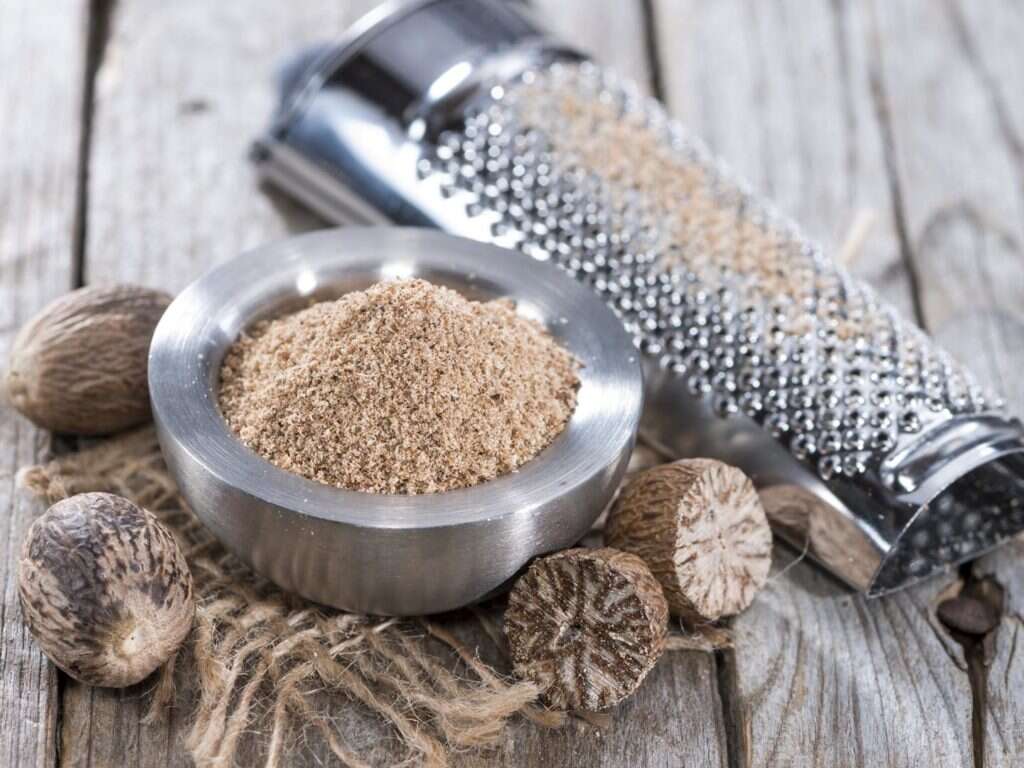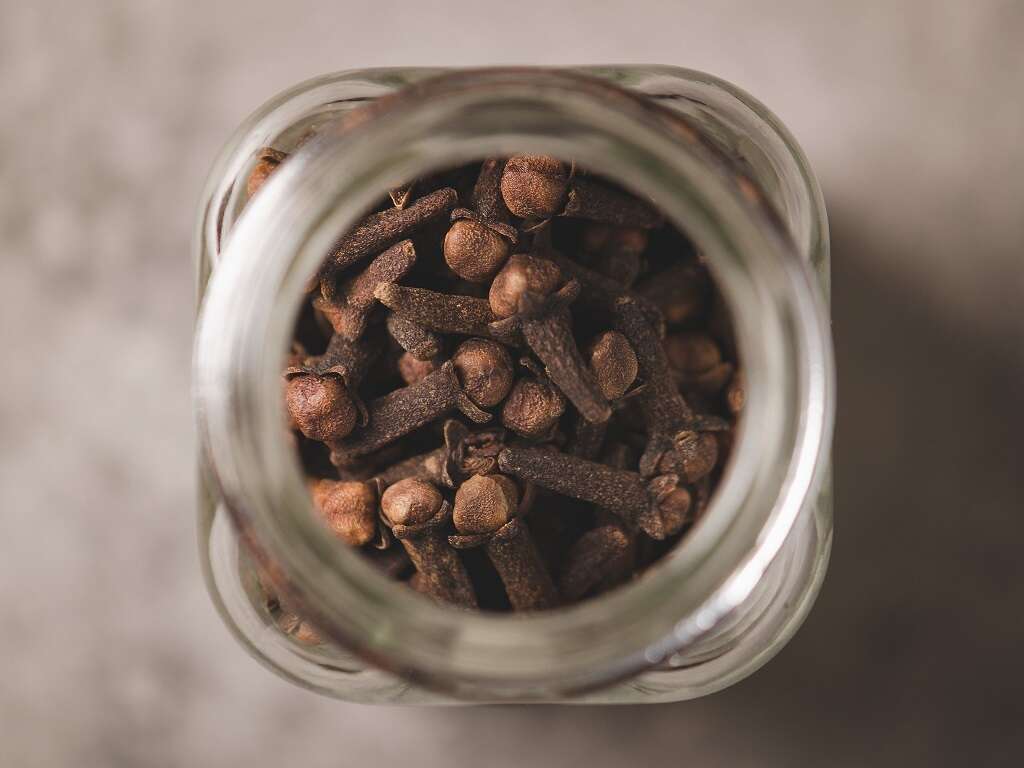10 Health Benefits of Paprika
Paprika is a spice that is very well known worldwide and is found in almost every kitchen cabinet. It goes along with salt and pepper and its taste goes from sweet to hot. The spice itself is made out of dried peppers and comes with many benefits.
Countries and cultures worldwide have their own way of making paprika. In Spain, for example, pep-pers are smoke-dried before they are turned to powder, and in Hungary, there are eight different grades of paprika, which vary when it comes to their color and heat.
Some people may already be familiar with the benefits of paprika, while many may not realize that this spice can do wonders for their health. This article, therefore, looks at 10 health benefits of paprika.
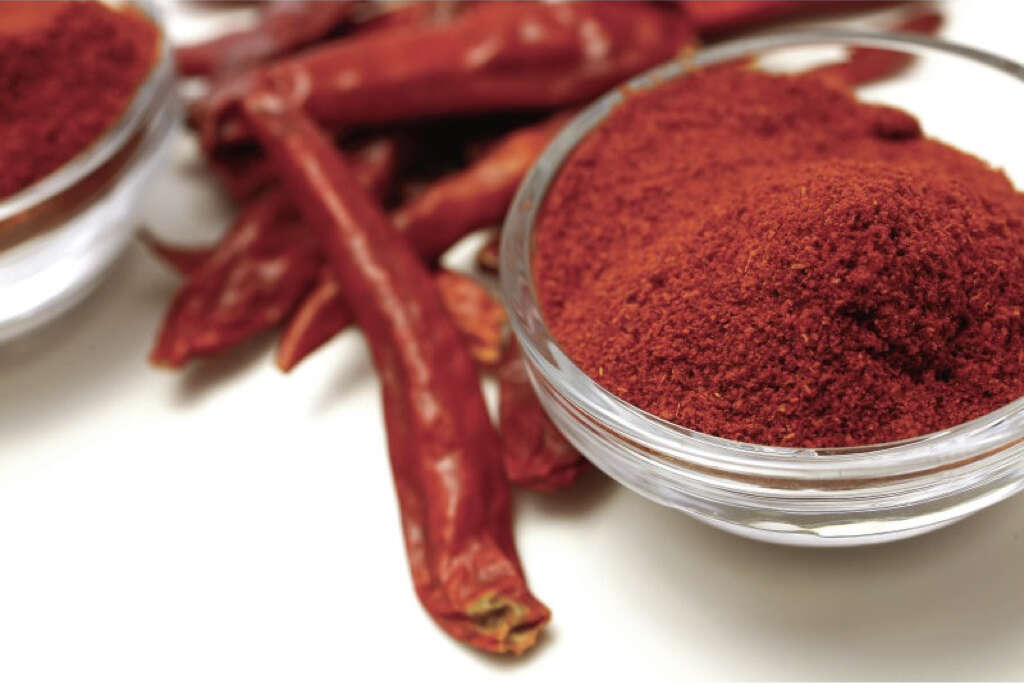
Paprika Benefit #1: Lowers Blood Pressure
One of the benefits of paprika is that it can help to lower blood pressure. This benefit is provided by the amount of capsaicin that is found in paprika. Capsaicin can relax the blood vessels, leading to a de-crease in blood pressure. Capsaicin is also the ingredient that creates the heat that is found in chili peppers.
Cayenne pepper contains more capsaicin then paprika does, but it is still an amount that can lower blood pressure. Capsaicin can also be used as a pain reliever and is also famous for its ability to help with sore muscles.

Paprika Benefit #2: Wound Healing
Paprika contains vitamin E, which can be very helpful when it comes to healing cuts and wounds. Vita-min E provides great support in the production of red cells. It protects our body from free radicals, which would otherwise damage our body.
Studies show that eating only one teaspoon of paprika will provide you with 5 percent of the daily in-take of vitamin E that is recommended for adults. Many might not know this, but paprika has tradition-ally been used for those who suffered an injury and are in the process of healing a wound, as paprika can speed up the process.
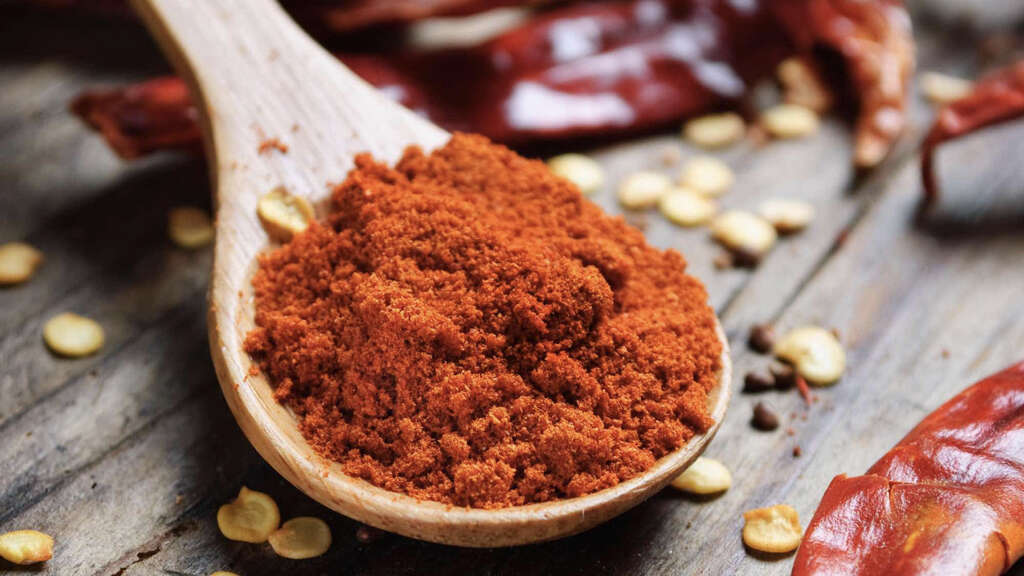
Paprika Benefit #3: Improves Digestion
Paprika is also recommended to those who have issues with digestion. It can boost saliva while balanc-ing the acid that is produced by the stomach. Stomach acid helps us to break down food into nutrients, which provide our body with the energy it needs to go on with the day.
It is important to not use too much paprika but to keep a balance and use it in moderation. Too much paprika might do more damage than good, so don’t overdo it by including it in all of your meals.
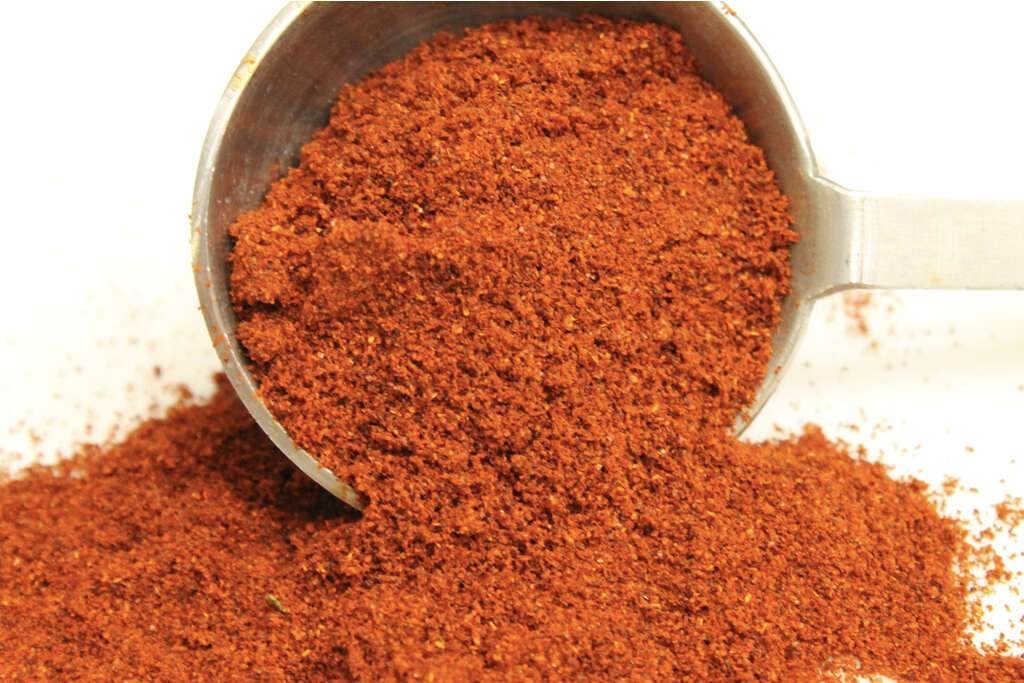
Paprika Benefit #4: Improves Vision
Another great benefit of paprika is that it can aid our vision and improve it. It contains carotenoids, which are very important when it comes to the health of our eyes. When these carotenoids are turned to vitamin A, they are used by our eyes to turn light into vision.
Carotenoids, lutein, and zeaxanthin, which are all found in paprika, are also known to help prevent muscular degeneration due to age and prevent the development of cataracts. It is recommended to include paprika in your diet due to its health benefits when it comes to vision and eye health.

Paprika Benefit #5: Improves Skin Health
Paprika is also highly beneficial when it comes to preventing age spots and freckles. This is due to the rich nutrients it contains, such as vitamins, beta-carotene, and iron. When it comes to vitamin A, which is also included in paprika, it is very beneficial for preventing wrinkles, free lines, and sagging skin.
Paprika promotes a bright complexion. If you want to use it for brightening your skin, you can mix pap-rika and honey and include it in your skincare routine. The results might not be visible straightaway, so it is important to maintain a routine.
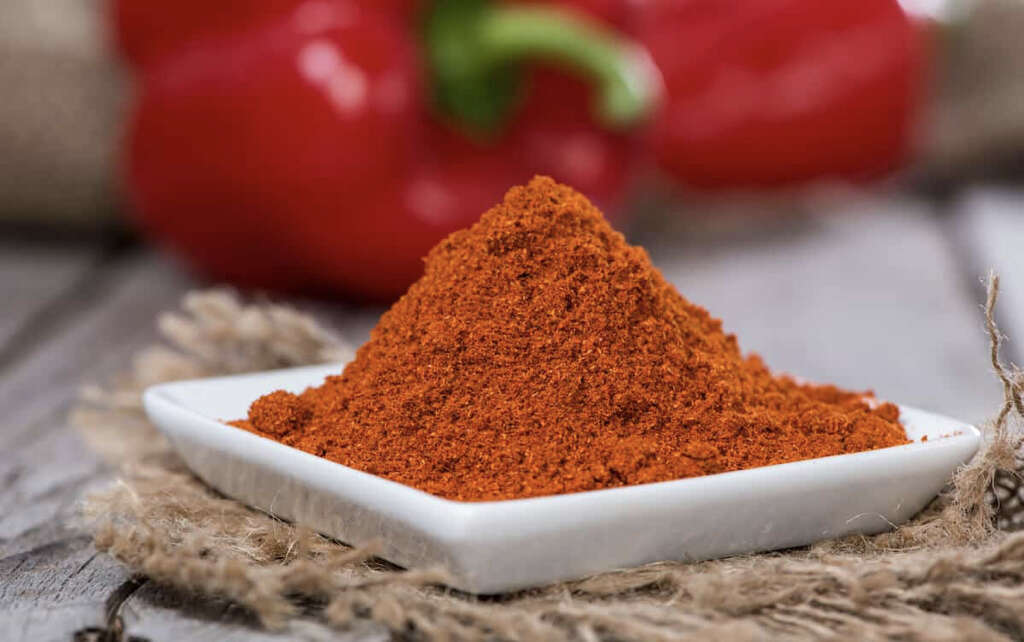
Paprika Benefit #6: Improves Hair Health
Paprika can also be used for hair health, as it is able to preserve your natural hair color, but it is also amazing when it comes to preventing hair loss. Hair loss can be prevented with the use of paprika, amongst others, due to the vitamin B6 that it contains.
Paprika also has iron, which can transfer oxygen to hair follicles. This then stimulates hair growth, due to improved circulation. Studies show that by consuming only one teaspoon of paprika a day, you gain 4 percent of vitamin B6 that is recommended for adults daily.

Paprika Benefit #7: Promotes Heart Health
Heart health can be promoted by using paprika, as the vitamins and minerals it contains provide bene-fits for the heart. Paprika and its vitamins and other nutrients are able to help in the protection from cardiovascular conditions, such as strokes and heart attacks.
The vitamin E that is found in paprika is helpful when it comes to heart conditions because it fights off free radicals that can damage the heart and lead to conditions. Potassium, magnesium, and iron also benefit the heart as they purify the blood.
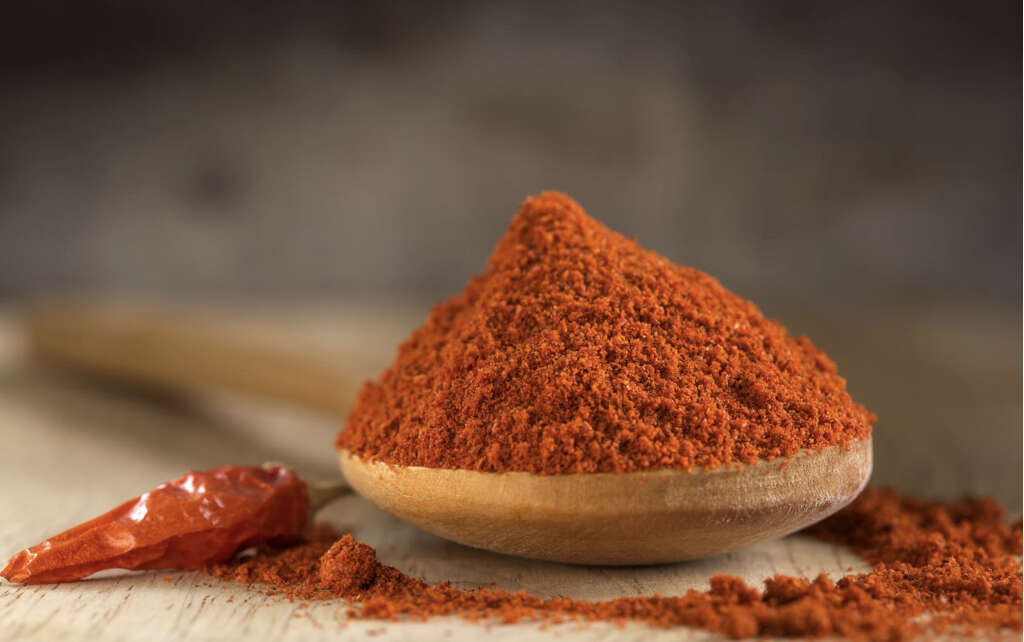
Paprika Benefit #8: Boosts Immunity
Paprika can generally aid our health, as it can also boost our immunity. Paprika is, therefore, essential when it comes to a nutrition-rich, balanced diet. It should be used when we cook and added to our meals, especially due to the vitamin A that it contains. It offers 1,100 international units of vitamin A for only one teaspoon.
Vitamin A is what provides paprika with the immunity-boosting properties, but it also improves our eyesight, fights off inflammation, improves neurological function, does wonders for our skin, and regulates thyroid function, which can otherwise lead to several conditions.
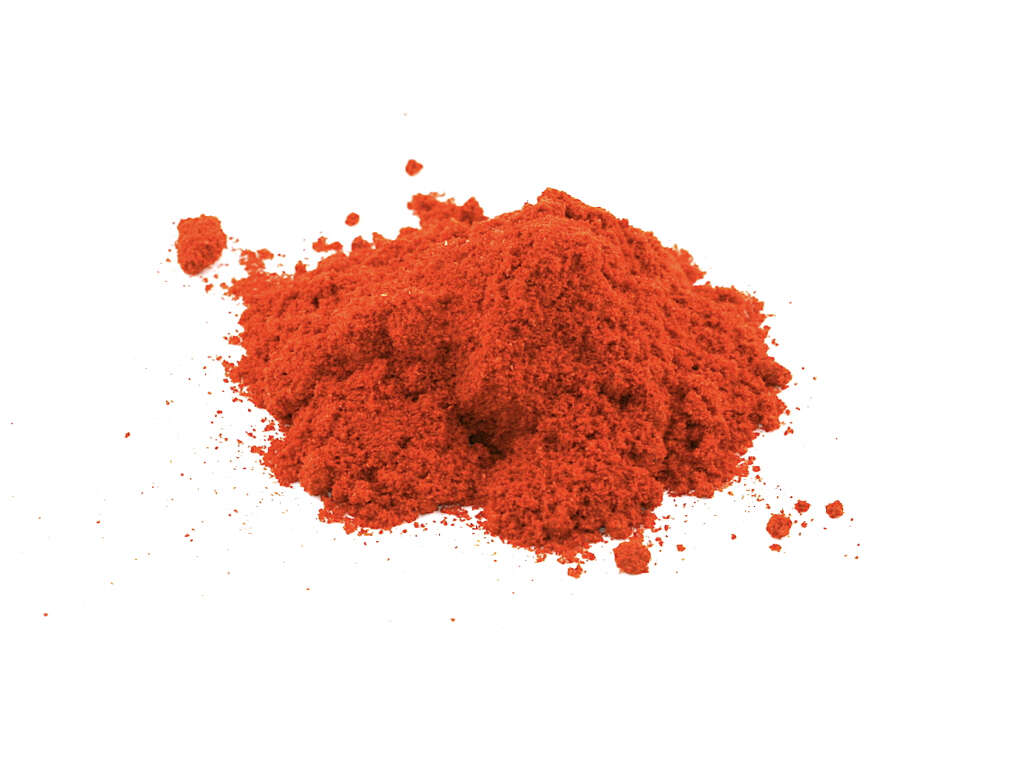
Paprika Benefit #9: Improves Sleep
People who have difficulties sleeping might be told to add more vitamin B6 to their diet, which can do wonders for psychological and neurological functions. Vitamin B6 can also help our body in the produc-tion of melatonin, which is the sleep hormone.
Melatonin can help humans to develop a normal sleep cycle. Additionally, melatonin can boost seroto-nin and norepinephrine levels, which are both hormones that work toward the reduction of stress. This can help us relax and fall asleep and stay asleep better. As paprika contains vitamin B6, it can im-prove our sleep habits as well.

Paprika Benefit #10: Prevents Anemia
Paprika is also beneficial to those who are suffering from anemia or are at risk of getting this condition and are looking for ways to prevent it. Paprika contains iron, which helps in forming red blood cells. It also contains vitamin C, which is crucial as it enables the body to absorb this iron.
Studies have shown that paprika has nine times more vitamin C than tomatoes and seven times more vitamin C than oranges. The combination of iron and vitamin C is why paprika, amongst other foods that are very beneficial against anemia, should be included in your diet.






